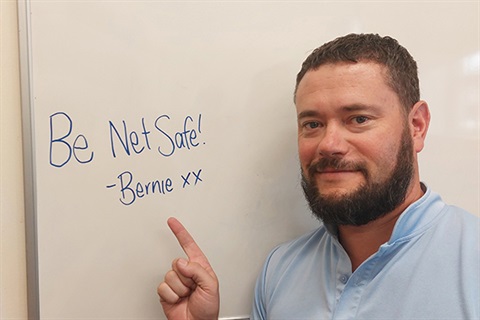Bernie on the Beat: Buyer Beware
Published on April 17, 2023

Social media can be great. It connects us to loved ones, like-minded people with similar hobbies and interests, current events, businesses, charities and government organisations. You can use it to view entertaining and interesting videos and content, and you can even use it to purchase goods and services from the comfort of your own home.
Remember though that social media has a dark side, particularly when using it as a trading tool. It’s easy to be tempted by goods and services advertised at bargain prices, but it’s important to protect yourself.
They say if something sounds too good to be true, it probably is. Keep this in mind if you are purchasing something off social media. Unfortunately, there are some people using this tool to defraud and steal from others.
There are good deals and genuine sellers, but before you hand any money over or agree to meet to make a trade, it is important to:
- Be especially wary of listings that offer shipping but insist on payment before delivery.
- Do not deposit money into another person’s account before you have received the item.
- Only buy from someone you know or whose identity you can verify. Learn more about who you are buying from (or selling to) by tapping on a person’s profile on the product listing page to view their marketplace activity, ratings they may have received and if you have any mutual friends.
- Insist on meeting in a safe space to examine the item before completing the transaction. Take a friend with you and let others know where you are going.
- Do not go into someone’s house or let them into yours.
- Avoid trades where the seller does not offer options to pick the item up or make payment by cash on collection.
- Trust your instincts. If it’s too good to be true or sounds like a scam, it probably is.
Scammers don’t just use Facebook to defraud their victims. Some criminals use phone calls, texts or emails pretending to be from businesses or government organisations. They can be convincing. It’s important to check where your correspondence comes from.
- Never give out personal information and don’t click on links from any unsolicited emails.
- Never give your card details to someone over the phone unless you initiated the call and you know the company is reputable.
There are useful websites you can access online to protect yourself from online scams:
If you have been a scam victim, there is no shame in this – it can happen to anyone. It is important to report any incidents to Police on 105 or visit your local station so something can be done to stop it happening to the next person.